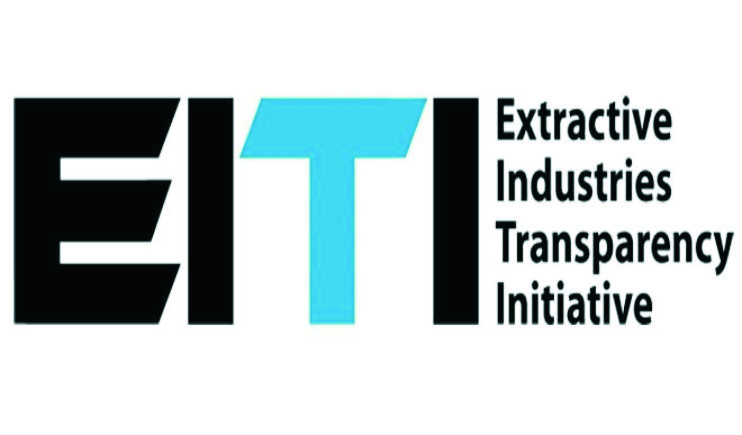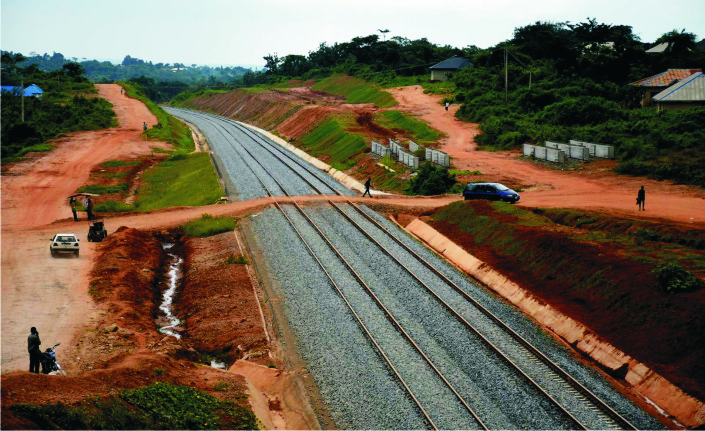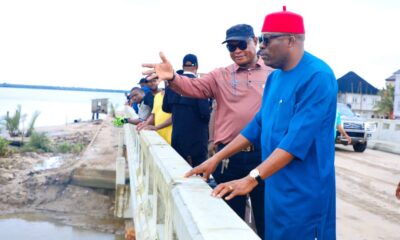News
Nigeria Earned N28.6trn From Oil, Non-Oil Sources In Five Years -NEITI

The Nigeria Extractive Industries Transparency Initiative (NEITI) said that N28.58trillion was remitted to the Federation Account between 2012 and 2016, from mineral revenues, non-mineral revenues and Value Added Tax (VAT).
NEITI disclosed this on its latest Fiscal Allocation and Statutory Disbursement (FASD) Audit report for the period 2012-2016, released in Abuja, yesterday.
It noted that apart from remittances to the Federation Account, the audit tracked statutory allocations and their applications with specific focus on nine states, four interventionist agencies, and five special funds.
The statement was signed by its Director of Communications and Advocacy, Dr. Orji Ogbonnaya Orji.
The nine states covered were Rivers, Bayelsa, Akwa Ibom, Nasarawa, Delta, Ondo, Imo, Kano and Gombe.
It also listed the federal agencies as Niger Delta Development Commission,( NDDC); Petroleum Technology Development Fund( PTDF); Tertiary Education Trust Fund (TETFUND); and Petroleum Products Pricing Regulatory Agency (PPPRA).
It further identified the special funds as Natural Resources Development Fund (NRDF); Petroleum Equalisation Fund (PEF); Excess Crude Account (ECA); Ecological Fund (EF), and Stabilisation Fund (SF).
Giving a breakdown of the N28.58 trillion remitted to the Federation Account, NEITI noted that mineral source contributed highest sum of N18.15 trillion, after deductions for joint venture cash calls and subsidy claims.
This represented 64 per cent of the total earnings, followed by non-mineral source N6.68 trillion, representing 23 per cent, while value-added tax (VAT), was put at N3.73 trillion, representing 13 per cent.
“A year–by–year breakdown of the total remittances showed that N4.19 trillion was remitted in 2012, while N4.73 trillion was recorded in 2013.
“Furthermore, N4.69 trillion was recorded in 2014 while N2.89 trillion and N1.65 trillion were remitted in 2015 and 2016 respectively.
“Analysis of the N18.16 trillion mineral revenues shared among the three tiers of government showed that Federal Government received N8.32 trillion from 2012 – 2016, the 36 state governments shared N4.22 trillion.
“The 774 local governments got N3.25 trillion. This is exclusive of N2.36 trillion 13 per cent derivation to the oil, gas and mining producing states,” it said.
The report also disclosed that from the share of non-mineral revenues of N6.68 trillion, the Federal Government received N3.52 trillion, while the 36 states got N1.79 trillion and 774 local governments took N1.38trillion.
“The total VAT revenue of N3.73 trillion was shared as follows: FGN – N560 billion, 36 States – N1.88 trillion and 774 LGAs – N1.31 trillion.
“Out of the N18.15 trillion recorded from mineral revenue within the period, highest receipt of N4.73 trillion representing about 26.07 per cent was recorded in 2013. It, however, noted that the plunge in global oil revenue from 2015 negatively affected mineral revenue remittances within the period.
“There was a decrease in global oil revenue from 2015 which accounted for the decrease in mineral revenue from N4.69 trillion in 2014 to N2.89 trillion in 2015 and to N1.65trillion in 2016,” it added.
NEITI further stated that out of total mineral revenue, the Nigerian National Petroleum Corporation (NNPC) remitted N8.62 trillion, the Department of Petroleum Resources (DPR), remitted N3.80 trillion, while Federal Inland Revenue Service (FIRS), remitted N10.46 trillion.
It noted that NNPC remittances were highest in 2012 while its Joint Venture (JV) cash calls were highest in 2014.
“NNPC’s net remittances to the Federation Account reduced from N2.38trillion in 2012 to N789billion in 2016.
“Out of the N18.16 trillion mineral revenues remitted in the period 2012 to 2016, the year 2013 accounted for the highest receipt of N4.73 trillion.
News
Nigeria’s Rail Transport Generated N1.69bn In Q2 -NBS report

The Nigerian rail system generated N1.69billionn in revenue from passengers in the second quarter of 2024, reflecting a 53.14 per cent increase compared to the N1.10billion recorded in the same period of 2023.
This data was disclosed by the National Bureau of Statistics in its report released yesterday.
According to the report, a total of 689,263 passengers travelled by rail in Q2, representing a growth rate of 45.38 per cent compared to 474,117 passengers in the corresponding quarter of 2023.
The volume of goods transported via rail also saw a significant increase, with 143,759 tons moved in Q2 2024, up from 56,936 tons in Q2 2023. Additionally, the Nigerian Railway Corporation reported a volume of 5,940 tons of goods transported through pipelines in Q2 2024, an increase from the 2,856 tons recorded in the same period of the previous year.
Revenue from goods conveyed via rail stood at N537.36m in Q2 2024, a remarkable increase of 206.68 per cent compared to N175.22m in Q2 2023. The movement of goods through pipelines also contributed to revenue generation, with N42.08m collected in Q2 2024, compared to N12.81million in Q2 2023.
Other revenue receipts amounted to N994.68million in Q2 2024, representing a staggering increase of 5,206.68 per cent from the N18.74m recorded in the corresponding period of last year.
In the first quarter, of 2024, The Tide source reported that Nigeria spent more on servicing the debt incurred for building its railways than the revenue generated by its railway system. The country spent 2,470 per cent more on railway debt servicing than it made from revenue from rail services in the first quarter of 2024.
News
NDDC Unveils Initiative To Enhance Food Security In N’Delta
The Niger Delta Development Commission (NDDC) says it is committed to advancing projects and programmes that enhance food security and sustainable growth in the region.
Chief Monday Igbuya, the Delta State representative on the NDDC Board, made this pledge in a statement issued in Port Harcourt, yesterday by the NDDC’s Director of Corporate Affairs, Mrs Seledi Thompson-Wakama.
Igbuya spoke at the inauguration of a training and empowerment programme for women and youths in livestock and agro processing in Amukpe, Sapele area of Delta.
He stated that the NDDC was prioritising livestock training in line with President Bola Tinubu’s Renewed Hope Agenda.
“NDDC is focussed on implementing programmes to ensure food security and agricultural growth in multi sectors, aiming to improve living standards.
“It is our belief that for socio-economic development to take place, there is need to develop manpower in the agricultural sector,” he said.
Igbuya expressed confidence that training farmers would enhance livestock production, create jobs, and alleviate poverty in the Niger Delta.
Mrs Winifred Madume, NDDC Director of Agriculture and Fisheries, said that training farmers and entrepreneurs was essential for improving productivity and market access.
“The commission has been promoting research and development through various institutions and providing farming techniques to beneficiaries,” she said.
The Project Consultant, Dr Simon Akhaine, said that 200 women and youths had registered for the livestock and agro-business skill acquisition programme.
According to him, the programme aims to equip them with the essential knowledge and skills for self-sufficiency in livestock farming, thereby boosting regional food security.
News
Tinubu Shelves UNGA79 Trip To Address National Challenges

President Bola Tinubu will not attend the 79th session of the United Nations General Assembly in New York this year.
In his stead, Vice President Kashim Shettima will lead Nigeria’s delegation to the annual summit.
Tinubu “wants to focus on domestic issues and address some of the country’s challenges, especially after the recent devastating flooding,” a statement from the President’s Special Adviser on Information and Strategy, Mr. Bayo Onanuga, revealed yesterday.
The statement is titled ‘Vice President Shettima to Lead Nigeria’s Delegation to the 79th United Nations General Assembly.’
It reads, “President Bola Tinubu will not attend the 79th session of the United Nations General Assembly in New York this year.
“Therefore, the President has directed Vice President Kashim Shettima to lead Nigeria’s delegation.”
Tinubu, who returned to the country last Sunday after his trips to China and the United Kingdom, “wants to focus on domestic issues and address some of the country’s challenges, especially after the recent devastating flooding,” said Onanuga.
At UNGA 79, Vice President Shettima will deliver Nigeria’s national statement to the General Assembly, attend important sideline events, and hold bilateral meetings.
The high-level General Debate, with the theme “Leaving No One Behind: Acting Together for the Advancement of Peace, Sustainable Development, and Human Dignity for Present and Future Generations,” will run from Tuesday, September 24, through Saturday, September 28, 2024.
-
Rivers2 days ago
NDDC Boss Dismisses Tenure Expiration Reports
-
Nation1 day ago
Jubilation As Rivers Community Gets New Paramount Ruler
-
News2 days ago
Edo Poll: My Vote Won’t Count, Residents Express Mixed Reactions
-
Politics1 day ago
Rivers Council Polls: Opobo/Nkoro Pledges Support For Cookey-Gam
-
News2 days ago
Workers Decry Cumbersome Process Of Accessing FG’s Subsidised Rice
-

 Featured1 day ago
Featured1 day agoIndependence Anniversary: RSG Sets Up Planning Committee
-
Rivers2 days ago
CP Gives Parting Gifts To Rivers With Arrest Of Criminal Elements
-
Nation1 day ago
FRSC To Begin 24-Hour Patrol To Curb Crashes

